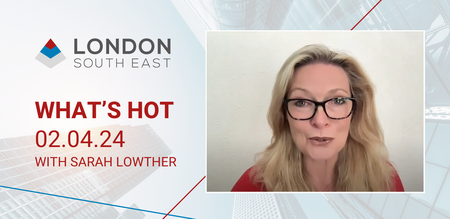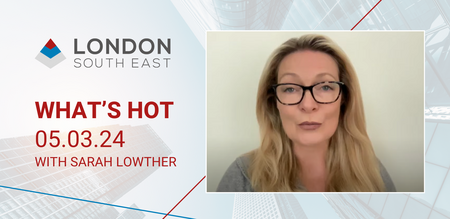The latest Investing Matters Podcast episode featuring Jeremy Skillington, CEO of Poolbeg Pharma has just been released. Listen here.
- Home
- Share Prices
- AQSE Share Prices
- Euronext
- Stock Screeners
- Share Chat
- FX
- News & RNS
- Events
- Media
- Trading Brokers
- Finance Tools
- Members
 View Video
View VideoLatest Share Chat
- LLOY. Barclays nearly 6% up now! I...
- MCG. 20% for European Express. Th...
- TUI. My assumption from their wor...
- DEC. Hello GG - so DEC aren't pro...
- AAU. It's a hard one Claret. I th...
- ARCM. I enjoy watching all the ram...
- SBTX. Mrvivo, New profile, one pos...
- MCG. "Do they need to be added to...
- SAR. I still think there is an ov...
- BT.A. Would a monstrous competitio...
- Share Prices
- Vodafone Share Price
- Vodafone Share Chat
 Vodafone Share Chat (VOD)
Vodafone Share Chat (VOD)
- There are 0 new chat posts. Click here to refresh the page.
VOD Share
PriceVOD Share
News0VOD Share
Chat4VOD Share
Trades2,538VOD
Live RNS0VOD Share
ChartsVOD Level 2
ConsoleVOD Live
Share PriceVOD Broker
Ratings0VOD Directors
Deals0VOD Financial
DiaryVOD
FundamentalsVOD Short
Positions0VOD
Media0
Watchlists are a member only feature
Login to your account
Don't have an account? Click here to register.Latest Vodafone Video
Other Videos You Might Like
Share Discussion for Vodafone
- You must be logged in to use filters Click here to login
Post a Message
- You must be logged in to post Click here to login
London South East prides itself on its community spirit, and in order to keep the chat section problem free, we ask all members to follow these simple rules. In these rules, we refer to ourselves as "we", "us", "our". The user of the website is referred to as "you" and "your".
By posting on our share chat boards you are agreeing to the following:
- You will only have one login account. Registering with multiple accounts is not allowed. Any user found to have more than one account on this site will have all, and any future accounts suspended permanently.
- Your email and password must only be used by you. If a post is made under your account, it will be considered that it was posted by yourself.
- Your account nickname must not be the same, or contain, listed company names or board members' names.
- While debating and discussion is fine, we will not tolerate; rudeness, swearing, insulting posts, personal attacks, or posts which are invasive of another's privacy.
- You will not;
- discuss illegal or criminal activities.
- post any confidential or price sensitive information or that is not public knowledge.
- post misleading or false statements regarding the share price and performance. Such posts are deemed as market abuse, and may be reported to the appropriate authorities.
- post any private communication, or part thereof, from any other person, including from a member of the board of directors of a listed company. Such posts cannot be verified as true and could be deemed to be misleading.
- post any personal details (e.g. email address or phone number).
- post live price or level 2 updates.
- publish content that is not your original work, or infringes the copyright or other rights of any third party.
- post non-constructive, meaningless, one word (or short) non-sense posts.
- post links to, or otherwise publish any content containing any form of advertising, promotion for goods and services, spam, or other unsolicited communication.
- post any affiliate or referral links, or post anything asking for a referral.
- post or otherwise publish any content unrelated to the board or the board's topic.
- re-post premium share chat posts on regular share chat.
- restrict or inhibit any other user from using the boards.
- impersonate any person or entity, including any of our employees or representatives.
- post or transmit any content that contains software viruses, files or code designed to interrupt, destroy or limit the functionality of this website or any computer software or equipment.
- If you are going to post non-English, please also post an English translation of your post.
- If you are going to post non-English, please also post an English translation of your post.
The IP address of all posts is recorded to aid in enforcing these conditions. As a user you agree to any information you have entered being stored in a database. You agree that we have the right to remove, edit, move or close any topic or board at any time should we see fit. You agree that we have the right to remove any post without notice. You agree that we have the right to suspend your account without notice.
Please note some users may not behave properly and may post content that is misleading, untrue or offensive.
It is not possible for us to fully monitor all content all of the time but where we have actually received notice of any content that is potentially misleading, untrue, offensive, unlawful, infringes third party rights or is potentially in breach of these terms and conditions, then we will review such content, decide whether to remove it from this website and act accordingly.
Premium and Verified Members
Premium Members are members that have a premium subscription with London South East. You can subscribe here.
London South East does not endorse such members, and posts should not be construed as advice and represent the opinions of the authors, not those of London South East Ltd, or its affiliates.
You certainly know your stuff robleo. Good comment.
GS, do you have a view on the bond yields (I'm long on t 20 year treasuries and it's staring to feel irritating)!
If anyone doesn't know why the stock market is falling the answer is BOND YIELDS.
Trust in Mr Guttersnipe esquire...
FED comments depressing the markets today. Another quarter point then hold for an extended period. Bond yields up. Div stocks less attractive.
Vodafone look like they are on the right tracks and making a sustainable recovery. I'll keep adding. I'm confident the dividend is going to stay and it's a good indication that the shares are underpriced - that the dividend is around 10%. Everyone seems to think the dividend has to correct down. That might have been true a year ago, but I think they will deliver strong H2 results. Not showing big growth, but looking leaner and more consolidated
All shares are falling, vod is just following the trend
I think todays SP action makes 75 very likely indeed and I added to my short earlier. Obviously out of hours new might be a kick in the teeth so I'm not going mad here.
Well BT is indeed now below 113 and VOD although holding out a little is still looking for downside and I still think 71 is very possible.
Gutter, I'm not sure if Dan likes poetry, but we will soon find out? good luck with that one lol
you must be liking his reply's i think
Desperate Dan
Crashed his van
Into a can
Of really nice Spam
The engine still ran
So he backed up the van
And recovered the Spam
For someones gran
Sometimes he gets mad
But he ain't all bad
Just angry a tad
And grumpy
I is his chum
Mentioned the plastic b u m
Which angered him some
But now he ho hum
When robleo is hear
He likes it for real
The calming voice
Relaxing his ears
So all in all
Dan has a ball
Even if all
The shares they do fall
Avocet. It's not what's behind his ears that's the problem, it's what's in between them.
Gutter, down days on the FTSE happen every month, October is no exception.
Just shows you are still a bit green behind the ears.
It is hear.
It's seasonal not personal.
I has already mentioned it were coming.
Down 100 on FTSE 100.
For such a large and diverse company it's remarkable how little news its investors get by way of RNS. Waiting for meaningful news has been akin to watching paint dry. Let's hope we're about to hear of positive company developments very soon. Shareholders' patience I suspect, is being stretched to the limit.
Jax. In what way timber? In what way is the storm coming?
Quoting 230 price isn’t good for the sole. That was then and this now. You can buy the company at 77p ps today. It’s a bit like saying I used to be good looking!
Muilder.. excellent find, For me Id be unhappy at anything less than twice present price so that proceeds could be put into a 5 percent divi co (vod divi 10 percent presently)
So either vod drops a little n gets taken out, or goes up and we happy .. win win, and while waiting real good divi.
As said before, vod has slid from a high of 230, even at double its present price its way off historic highs.
Desperate Dan will sleep well tonight with the calming voice of robleo in his ears.
Very well said danelh, nobody does know, but we all want it to do well obviously, well maybe not all ?
These are difficult times for most businesses at the moment with high inflation and interest rates etc. Hopefully this will get back to a £1 and beyond in the not too distant future
Gla
Gwm121. The polite answer is, nobody knows. I am a long term holder, & don't come on this forum to pretend I know which way the sp will go. I am possitive though, because I am going to hold & think the sp is undervalued. I could come up with all sorts of technical stuff lifted from the internet to support the sp, but others may come up with the opposite. For me this a share chat forum for vod share holders to chat. Not a site for expert predictions, if you want that, you have to pay for it, but you still may not get it. Nobody on here knows what the vod sp is going to do, so please stop pretending otherwise.
May i politely ask why few give reasoned arguments as to the price vod will be. Other company boards discuss free cash flow graphs news .. and the price. Some of the info is highly educational, and interesting, Id love to see this here with the price prediction.
.. My prediction.. I have none, Its a hold and forget stock for me with at present a near 10percent div (less TAX !!!! d ac) Though I cant predict price, I would like to think 1.....below 70 it would be eyed for foreign takeover split up, 2... descending chart seemed to to turn to ascending 2 months ago .. 3... India worth 20pc more Spain interesting developments. ...4.. all the talk of inflation makes price rises easy .. 5.. less new license cost.
NOTE... decades ago vod share price 230 low 70's recently near 10pc div at todays price.
Comment please... do you consider this now a utility co churning out divi, or a growth stock.
Northern Rock had no issue with gutters mates not paying their loans. They had become reliant on short term funding market to service their own debt that they were lending out long term. When the short term funding market seized up, it was northern rock who could not service their own debts.
If you are going to educate gutter, probably helps to get the facts right.
Happy Sunday everyone.
Vod closing Sp 6th Oct
Tars 83.14p
Added to list
Entries by 12pm Mon
83.14 please Monsieur Roofer
Ok. That would be Mr Gutter


